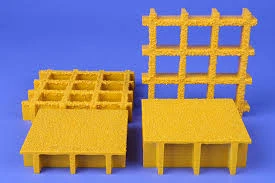loading...
- No. 9, Xingyuan South Street, Dongwaihuan Road, Zaoqiang County, Hengshui, Hebei, China
- admin@zjcomposites.com
- +86 15097380338
- Welcome to visit our website!
fiberglass water container
The Advantages of Fiberglass Water Containers
In recent years, the demand for effective and durable water storage solutions has escalated. Among various options, fiberglass water containers have emerged as a popular choice, thanks to their unique properties and advantages. This article explores the benefits, applications, and key features of fiberglass water containers, highlighting why they are increasingly being utilized in various industries.
Durability and Longevity
One of the most significant advantages of fiberglass water containers is their exceptional durability. Fiberglass is a composite material made from plastic reinforced with glass fibers. This combination results in a robust structure that can withstand extreme environments, including fluctuations in temperature and heavy impacts. Unlike traditional materials such as metal or plastic, fiberglass does not corrode or degrade over time. This durability translates into a longer lifespan for water containers, making them a cost-effective choice in the long run.
Resistance to Chemical Reactions
Fiberglass water containers are highly resistant to a range of chemicals, which is crucial for industries such as agriculture and chemical manufacturing. These containers can safely store not only water but also various chemicals and fertilizers without the risk of contamination or degradation. This property makes them suitable for use in diverse applications, including potable water storage, irrigation systems, and industrial processes.
Lightweight Yet Strong
Another remarkable feature of fiberglass is its lightweight nature compared to steel or concrete materials. This characteristic simplifies transportation and installation, reducing labor costs and the need for heavy machinery. Despite being lightweight, fiberglass containers retain their strength, making them ideal for situations where weight is a concern, such as in portable water storage applications or emergency response scenarios.
Insulation Properties
fiberglass water container

Fiberglass has excellent insulating properties, which help to maintain the temperature of the stored water. In regions with extreme temperatures, maintaining water at a stable temperature is crucial for various applications, including agricultural irrigation and aquaculture. The insulating nature of fiberglass can prevent water from freezing in cold climates or overheating in hot weather, ensuring the stored water remains viable for its intended use.
Customization and Versatility
Fiberglass containers can be easily molded into various shapes and sizes, providing a high degree of customization. This flexibility allows manufacturers to create containers tailored to specific operational needs, whether for residential, agricultural, or industrial purposes. Additionally, fiberglass can be produced in different colors and finishes, making it suitable for aesthetic applications where appearance is important, such as in landscaped areas or decorative water features.
Environmental Impact and Sustainability
As the world increasingly focuses on sustainability and environmental responsibility, fiberglass water containers stand out as an eco-friendly option. They can be manufactured using recycled materials and are themselves recyclable at the end of their lifespan. Furthermore, the longevity and durability of fiberglass reduce the frequency of replacement, leading to less waste over time. For those seeking sustainable water storage solutions, fiberglass presents a responsible choice.
Cost-Effectiveness
While the initial investment in fiberglass water containers may be higher compared to plastic alternatives, their long-term benefits outweigh the costs. With their durability, low maintenance requirements, and resistance to chemical reactions, fiberglass containers can save users significant amounts of money in replacement and maintenance over time. This cost-effectiveness, combined with their performance capabilities, positions fiberglass as an economically sound choice for both individuals and businesses.
Conclusion
In summary, fiberglass water containers offer a myriad of advantages that make them an ideal solution for various storage needs. Their durability, lightweight construction, chemical resistance, insulation properties, and customization options provide users with practical and versatile choices. Furthermore, their environmental impact and cost-effectiveness strengthen their appeal. As industries and individuals continue seeking reliable and sustainable water storage solutions, the role of fiberglass containers will undoubtedly grow, solidifying their position in the marketplace. Whether for residential use, agricultural practices, or industrial applications, fiberglass water containers are set to become an increasingly important asset in effective water management strategies.
-
The Rise of FRP Profiles: Strong, Lightweight, and Built to LastNewsJul.14,2025
-
SMC Panel Tanks: A Modern Water Storage Solution for All EnvironmentsNewsJul.14,2025
-
GRP Grating: A Modern Solution for Safe and Durable Access SystemsNewsJul.14,2025
-
Galvanized Steel Water Tanks: Durable, Reliable, and Ready for UseNewsJul.14,2025
-
FRP Mini Mesh Grating: The Safer, Smarter Flooring SolutionNewsJul.14,2025
-
Exploring FRP Vessels: Durable Solutions for Modern Fluid HandlingNewsJul.14,2025
-
GRP Structures: The Future of Lightweight, High-Performance EngineeringNewsJun.20,2025
